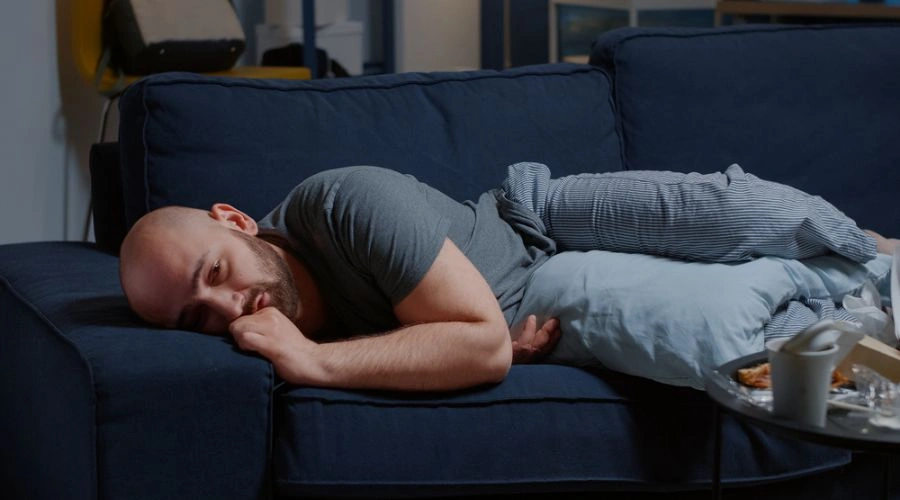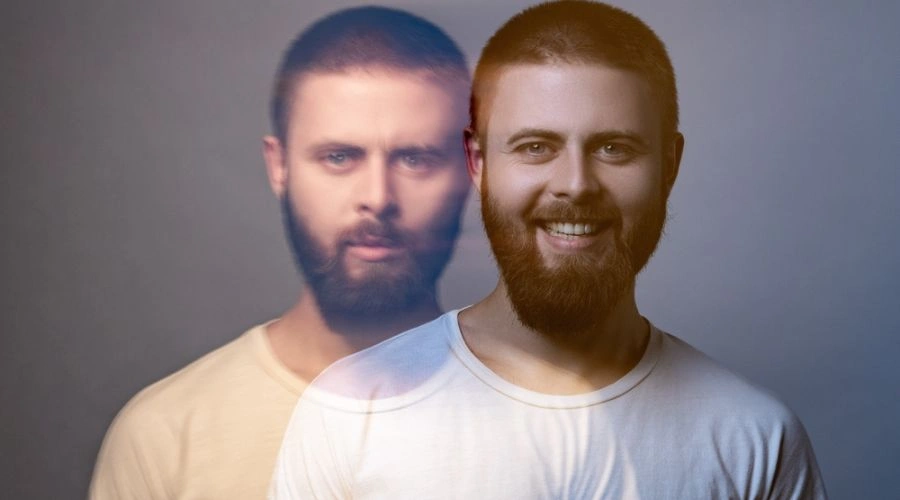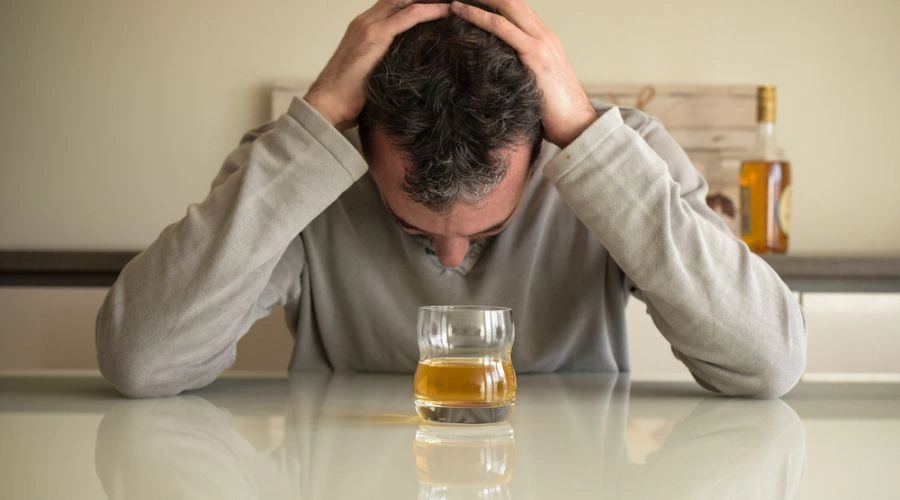The Relationship Between Bipolar Disorder and Addiction
Do you think that you might have more going on than just substance abuse? It’s not uncommon to find that someone who uses drugs or alcohol also has mental health issues. Bipolar and addiction are often seen together, which can complicate the treatment process without targeted help.
Bipolar disorder is characterized by mood swings from manic highs to depressive lows. It isn’t caused by drug and alcohol use, but the onset could be triggered by substance abuse and complicate effective treatment. Talk therapy and medication are the frontline treatments for both bipolar and addiction.
South Shores Detox can help you in the early days of seeking help for your substance abuse. We offer a luxurious facility where you’ll be comfortable as drugs and alcohol leave your system. Keep reading to learn more about bipolar disorder and how it might impact your course of treatment.
Symptoms of Bipolar Disorder: Bipolar I and Bipolar II Disorder

It’s important to understand the clinical characteristics of both bipolar I disorder and bipolar II disorder before you can understand the link between these diagnoses and substance use disorder. Both of these diagnoses are serious conditions highlighted in the Diagnostic and Statistical Manual, the bible of the psychiatric world.
They have four distinct phases of moods that characterize the disorder: mania, hypomania, depression, and mixed episodes. Most people rotate between these extremes, though there may not be a particular pattern when you experience one over the other.
Manic Episode
Manic episodes are intense highs, and most people experience them as pure euphoria. They can last for quite some time and may cause agitation as time passes. They are characterized by impulsive actions and possibly even psychosis. Hospitalization may be required to keep you safe and monitor symptoms. Only bipolar I disorder has manic episodes.
Hypomanic Symptoms
Hypomania is less intense than full mania but has many of the same symptoms. They tend to be shorter, often resolving after four days have passed. You may not need to be hospitalized for these shorter, less intense episodes. Both bipolar I and bipolar II can have hypomania.
Depressive Episode
Both diagnoses can cause depression that lasts for weeks at a time. During this time, you may lose interest in doing things, feel extremely tired, and feel hopeless. Suicidal thoughts may occur, and you may require inpatient treatment for safety.
Mixed episode
In some instances, you may have symptoms of both mania and depression at the same time. This is known as a mixed episode and can be extremely dangerous as it leads many people to act on their suicidal impulses in a depressive episode.
Do Drugs and Alcohol Cause Co-Occurring Disorders?
Can drug and alcohol use trigger the onset of bipolar disorder? This is an important question that many people have attempted to answer. The short answer is that drug or alcohol use disorder doesn’t cause bipolar, but it can lead to an earlier onset of the mental illness.
Bipolar is caused only by genetics in those predisposed to the disorder. That means that your choice to use drugs or alcohol can’t influence your genetics.
However, that doesn’t mean it can’t speed up the process. Among those with the predisposition to develop bipolar, drugs and alcohol can trigger a mood episode even if you have never had one before. Not only can they trigger the onset of the illness, but they can also worsen the symptoms and make it that much harder to treat.
The Influence of Drug or Alcohol Use Disorder on Bipolar Treatment
The problem for many clinicians is that these co-occurring disorders make it much more difficult to treat both bipolar and addiction. Your mental health will be hard to improve until you quit the use of drugs or alcohol altogether. Any progress you may make could be undone by drinking or using drugs.
Dual diagnosis is notoriously difficult to treat, but even more so in patients with bipolar disorder.
Substance abuse often leads people to think that they no longer require the help that they carefully put in place. It might mean that you struggle with medication adherence. Without medication, you will be much more likely to experience an extreme mood episode that will only be worsened by your substance use, even if you haven’t had one in years.
In addition, substance abuse clouds your judgment and thinking. You might have learned all of the tools you need to cope with mood swings in therapy, but they won’t be top of mind when you’re drinking or using drugs.
Is There a Link Between Bipolar Disorder and Substance Abuse?
Did you know that the Substance Abuse and Mental Health Services Administration estimates that one in four adults with a mental illness will also experience substance use disorder? This connection is perhaps most evident in the relationship between bipolar disorder and addiction.
In fact, studies estimate that roughly 40 percent of people with bipolar I have a substance use disorder.
There are studies out there highlighting the connection, but the underlying reason why these mental disorders overlap is not yet known.
One thought surrounding co-occurring bipolar disorder is that it could be the result of neurobiology and genetic underpinnings. In other words, your brain is hardwired to be prone to addiction if you have this diagnosis.
The question remains: how does a bipolar diagnosis impact your substance abuse?
Co-Occurring Bipolar Disorder and Worsening Bipolar Symptoms
Because people with bipolar disorder have extreme mood swings from manic highs to depressive lows, the effects of drug or alcohol addiction can be less obvious. However, there is an important link here between worsening conditions and substance abuse.
When someone has bipolar disorder, they’ll often try some at-home remedies to quell their moods. For many, alcohol starts as a way to soothe the agitation of a manic episode and to lift the heaviness of a depressive episode. Eventually, they come to depend on the effects of alcohol or drugs to lift them out of a specific mood episode.
The problem is that alcohol and drug abuse don’t do you any favors in managing your mental health. In fact, alcohol is known to send you into depression. It can also trigger you to take more impulsive actions in a manic episode, leading you to act on your delusions, which could prove dangerous.
In short, you’ll often find that bipolar disorder and addiction complicate one another and can make it that much harder to treat on an outpatient basis.
What Treatments Are Available for Bipolar and Addiction?
The good news is that there is help available if you think you may be developing bipolar disorder and want to get it under control alongside your addiction. Bipolar disorder and addiction can be treated in some of the same ways.
Dialectical Behavioral Therapy and Other Types of Counseling
Talk therapy is one of the first lines of treatment for both conditions. Dialectical behavioral therapy can equip you with the tools you need to notice and respond to your mood swings. Bipolar patients tend to do well with mindfulness techniques taught in DBT, whether in an individual or a group setting. It also teaches distress tolerance so that you don’t turn to substances when situations arise.
You could also benefit from cognitive behavioral therapy where you’ll learn how thoughts and feelings influence your actions. If you can stop thoughts in their tracks before you turn to drugs and alcohol, you’ll be able to change your habits and actions.
There are many types of therapy that can help with bipolar and addiction, but these are the main two treatment modalities that most clinicians will turn to first.
Treatment Medications for Your Mental Health Disorder and Substance Use
In most instances, medication is required to control the mood swings that come along with a bipolar diagnosis. There are some medications that tend to outperform others when you’re also going through substance abuse treatment. Choosing the right medication with your psychiatrist can help both.
According to many studies, there are three medications that can be used as a frontline treatment for both bipolar and substance abuse: quetiapine, aripiprazole, and lamotrigine. All three have properties that can improve your mood while also making you less likely to give in to the impulse to use alcohol or drugs.
Keep in mind that you may need to be monitored for progress and improvement. Dosages may need to be changed and tweaked until you find the right combination.
Help for Withdrawal Symptoms from Drugs and Alcohol
Of course, treating a substance use disorder also means that you may need to deal with the immediate effects of stopping drugs and alcohol. This can put you in a precarious situation. Withdrawal symptoms can be very difficult to manage on your own at home and could trigger another mood episode.
South Shores Detox gives you a safe space to land when you have a dual diagnosis. We monitor you at all times and can keep you safe from yourself. We may also be able to offer medication that will make you more comfortable and start you on the path to healing.
Enroll in South Shores Detox Today
No matter your diagnosis, South Shores Detox can help you take the first steps toward recovery. We offer a safe and comfortable place where you can spend the early days of your sobriety. Our team will monitor you around the clock to ensure your safety with minimal side effects.
Our enrollment team is ready and waiting to answer your questions. Let them verify your insurance benefits in a quick, confidential call, and allow them to reserve you a spot in our treatment program.





